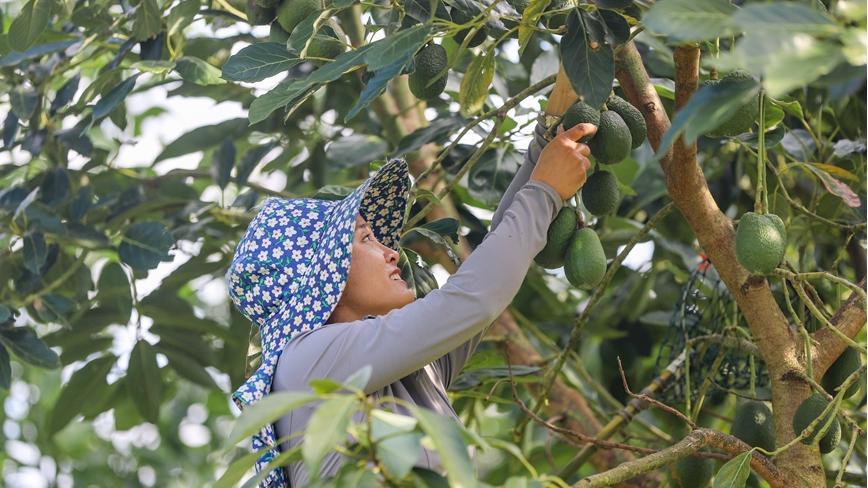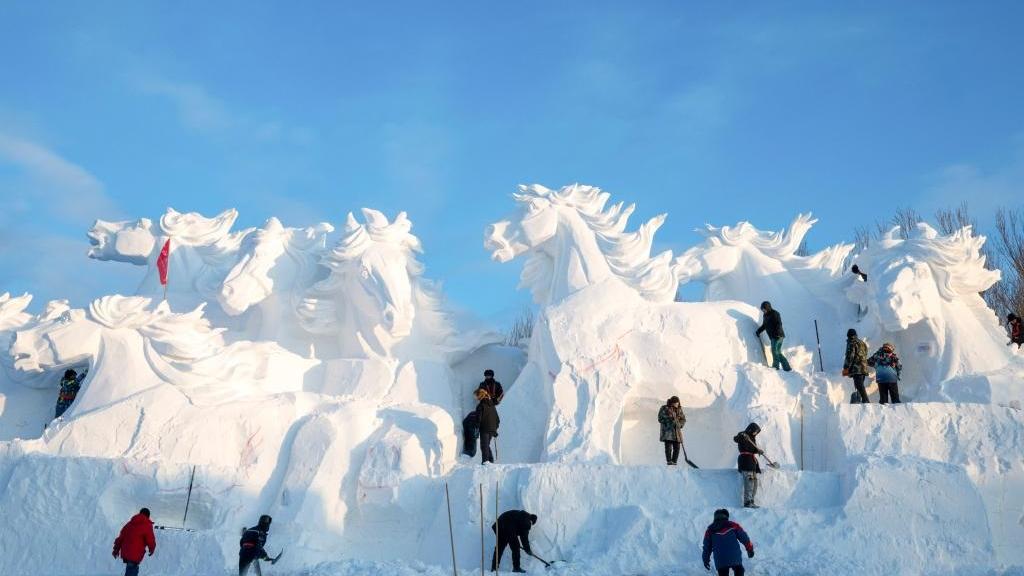Feature: Tale of two generations: An American family's bond with China across time, cultures
BEIJING, Dec. 26 (Xinhua) -- For JongMay Urbonya, Hanfu is more than traditional Chinese attire -- it's a bridge between cultures and a window into China's rich history. At 30, the American cultural influencer has captivated nearly half a million followers online with her passion for Hanfu and her love for Chinese traditions.
However, her journey is deeply intertwined with the story of her parents, who first planted seeds of cultural appreciation long before she discovered her connection to China.
JongMay was born in 1994 in Dalian, a coastal city in northeast China where her parents, originally from Wisconsin, worked as English teachers. They arrived in China in 1987, during earlier stage of the country's reform and opening-up, motivated by a belief in the power of global understanding.
"My parents often reminisced about how the hospitality and kindness of the people in Dalian left a lifelong impression on them," JongMay said, adding that "it was the Chinese Lunar New Year when my parents first arrived, and despite being strangers in a foreign country, they were warmly invited to celebrate with local families."
The couple quickly became embedded in their community, learning from the locals and contributing to the cultural exchange. JongMay's father, Tim Urbonya, also portrayed Edgar Snow in a 1994 television series adapted from the book Red Star Over China, where he visited revolutionary landmarks such as Yan'an.
"My dad always told me that those years in Dalian were some of the most transformative of his life," JongMay reflected. Inspired by these experiences, he wrote a song titled "I Am Chinese," celebrating the cities they had traveled to and his deep connection to the country.
The family's bond with Dalian was so profound that they gave JongMay's elder sister the Chinese name "Dalian" to honor the city and its people while JongMay was named after the Chinese pronunciation of "China" and "America".
"My parents' love for China shaped the environment I grew up in," JongMay said. "Even after we returned to the United States when I was six, their appreciation for Chinese traditions continued to influence me."
JongMay recalled childhood evenings watching historical Chinese dramas and films with her parents. "I didn't understand much Chinese back then, but the stories and historical settings captivated me," she said. Her parents also encouraged her to learn Mandarin and connect with Chinese friends.
This upbringing ignited JongMay's curiosity about her Chinese roots, eventually leading her back to the country.
"I wanted to experience China through my own eyes," said JongMay, fluent in Mandarin. "My parents taught me to embrace curiosity and cultural exchange, and I hoped to carry that legacy forward."
By the time JongMay Urbonya arrived in Beijing during high school and later college, majoring in Chinese dance, the country was undergoing a revival of ancient traditions, with younger generations embracing the heritage in modern ways.
From the growing popularity of Hanfu to a resurgence of interest in classical Chinese arts like calligraphy and poetry, the revival provided JongMay with the perfect backdrop to deepen her connection to China.
Over the years, her passion for Hanfu, classical poetry, and calligraphy grew into a vibrant career. Today, she creates content on social media platforms, including TikTok, Bilibili and Xiaohongshu, showcasing different facets of Chinese culture to a global audience.
"Hanfu reflects China's rich history and craftsmanship," she said. "It's a way to connect with the past while inspiring the present."
Her father's creative spirit and her parents' philosophy of cultural exchange inspire her current work. From blending traditional Chinese crafts into modern contexts to showcasing dialects and local markets, JongMay continues to promote understanding between cultures.
"Their stories about living in China during the 1990s -- a time when material life was less abundant but human connections were rich and genuine -- resonate deeply with me," she said. "I see their values in everything I do."
"I want to use my experiences to build meaningful bridges," she said. "Through Hanfu and other traditions, I've learned that embracing different cultures makes us all richer."
Photos
Related Stories
- Chinese Embassy in U.S. hosts winter solstice-themed cultural event
- Profile: Brazilian sinologist hails Macao's role in promoting Chinese culture
- Chinese culture adds to appeal of ski season in NE China's Jilin
- Decoding decades of efforts to preserve Qiang New Year festival
- Digital innovation empowers "China-chic" products to go global
Copyright © 2024 People's Daily Online. All Rights Reserved.









